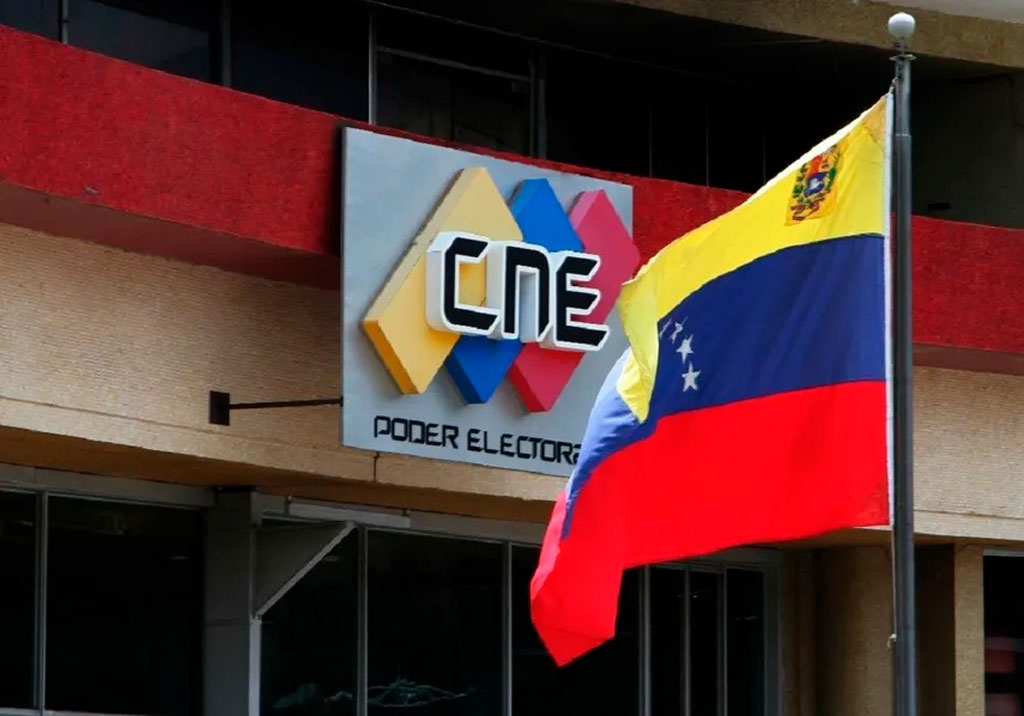By Andreína Chávez Alava for Venezuelanalysis
Caracas, August 3, 2024 (venezuelanalysis.com) – Venezuela’s National Electoral Council (CNE) released a second bulletin on Friday confirming President Nicolás Maduro’s reelection amidst tensions and fraud claims.
With a reported 96.87 percent of voting centers tallied, the CNE had Maduro win July 28’s presidential election with 51.95 percent (6.4 million votes) compared to 43.18 percent (5.3 million votes) for opposition candidate Edmundo González. The margin between the two candidates increased marginally compared to the CNE’s first bulletin.
In a press conference, CNE President Elvis Amoroso stated that 12.3 out of 21.3 million voted on Sunday for a 59.97 percent turnout.
However, the electoral body did not release the results broken down by voting center on its website which remains out of service. CNE authorities have denounced an ongoing cyber attack that has delayed the vote-tallying and publishing operations. The magnitude of the issue has not been fully clarified.
For its part, Venezuela’s hardline opposition has rejected the official results and set up a parallel website purportedly including more than 80 percent of voting records from polling stations gathered by its electoral witnesses on Sunday.
These yet unverified electoral tallies reportedly grant González a landslide victory with more than 70 percent of the vote.
National Assembly (AN) President Jorge Rodríguez said on Friday a “superficial analysis” of the opposition’s electoral evidence revealed several inconsistencies and claimed the materials were forged.
Rodríguez, who was also Maduro’s campaign chief, pointed at damaged, incomplete or illegible records, as well as some missing signatures from witnesses and polling station officers. He additionally provided evidence that the opposition’s website was created before the election.
“This is pure garbage”, said Rodríguez during a press conference with Maduro.
Washington has nonetheless fully backed the opposition’s claim. On Thursday, US Secretary of State Antony Blinken declared that it was “clear” González had won the election. Meanwhile, a leaked draft of a House resolution proposed by US Representatives Debbie Wasserman Schultz (D) and Mario Díaz-Balart (R) called for recognizing González as the “president-elect of Venezuela” and urged the “imposition of new sanctions” against the Caribbean nation.
Peru, Uruguay and Argentina have likewise supported the opposition candidate as the winner while the governments of Colombia, Brazil, and Mexico have demanded respect Venezuelan sovereignty while the country’s institutions resolve the electoral issue.
To challenge the far-right opposition’s claims of a fraudulent election, on Wednesday President Maduro petitioned the Electoral Chamber of the Supreme Court of Justice (TSJ) to conduct a judicial review of the electoral results. He pledged to submit the tallies collected by the Socialist Party (PSUV) and allied forces when requested.
In response, on Friday the country’s highest court demanded all ten presidential candidates and political parties involved in July 28’s vote to submit “relevant legal documents” required to revise the electoral results. All candidates except for González appeared in a session at the TSJ headquarters in Caracas.
María Corina Machado, the main leader of the far-right opposition, has not revealed whether González’s campaign will introduce their alleged evidence to the court or even acknowledged the judicial investigation. In a Wall Street Journal op-ed, Machado claimed to be in hiding after being pointed out as responsible for plotting a violent coup and called on the “international community” to help enforce the opposition’s claimed victory.
Several opposition candidates present at the Supreme Court’s headquarters criticized the CNE’s delay in providing detailed electoral results and urged for their immediate publication. Some supported the TJS’s intervention to resolve the electoral controversy while others argued it absolved the electoral body of its responsibilities.
Benjamín Rausseo, of the CONDE party, stated that most presidential hopefuls had trusted “the word of the arbitrator” but that a “cloack of opacity” had generated doubts and violence.
For his part, Antonio Ecarri from the LAPIZ party said that the “cure” for the current unrest was “transparency” and urged the electoral council to assume its role and publish the detailed results. “Not everyone who is protesting in the neighborhoods is a fascist.”
He went on to criticize the lack of clarity surrounding the TSJ’s review, with candidates not knowing whether they were summoned as witnesses or defendants and not having been privy to Maduro’s petition.
Following the meeting with the candidates, TSJ President Caryslia Rodríguez demanded the CNE present within three days the voting records from electoral centers nationwide, the totalization records for the electoral process and the report declaring Maduro as the winner.
In a televised press conference, Rodríguez stated that the electoral institution has to provide “all the elements of evidence” associated with the alleged cyber attack that has impeded “the timely transmission of the electoral results.”
The non-recognition of the electoral results by the US-backed opposition sparked protests on Monday in many Venezuelan cities which in many cases generated violent clashes with security forces. Some media outlets have reported more than 10 deaths but these remain unconfirmed.
According to Attorney General Tarek William Saab, there have been over one thousand arrests, 77 servicemen have been wounded and one sergeant was killed. The unrest calmed down on Wednesday but more anti-government mobilizations are scheduled for Saturday. Chavismo is also rallying to reject violence and foreign meddling.

